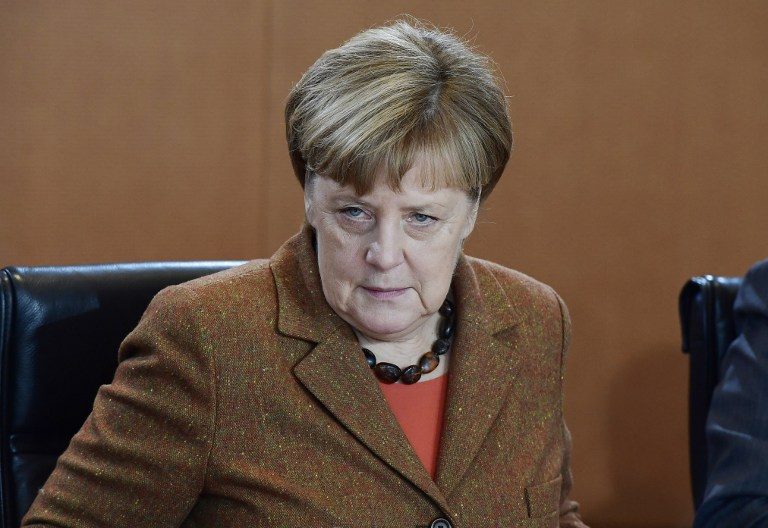SUMMARY
This is AI generated summarization, which may have errors. For context, always refer to the full article.

BERLIN, Germany – Chancellor Angela Merkel and her coalition partners appeared more divided than ever Sunday, November 6, in their search for a joint candidate to be Germany’s next president, highlighting the tensions between the parties ahead of next year’s general election.
“There is no agreement,” a source close to the negotiations told Agence France-Presse after talks between Merkel, who heads the Christian Democrats (CDU), and the leaders of the other two parties in her right-left grand coalition ended without a breakthrough.
German media said Merkel’s discussions with her Bavarian ally Horst Seehofer of the CSU and Sigmar Gabriel of the Social Democrats would resume next weekend.
The 3 have been wrangling for months over who to nominate as a potential successor to President Joachim Gauck, 76, who announced in June was stepping down due to his advancing age.
The role is largely ceremonial, with the president traditionally seen as a figure who transcends party politics and serves as a kind of moral arbiter for the nation.
But with German parties shifting into campaign mode, the succession discussions have turned into a display of political power.
Outspoken vice-chancellor and economy minister Gabriel ratcheted up tensions two weeks ago when he unexpectedly declared popular Foreign Minister Frank-Walter Steinmeier of the SPD as his party’s preferred candidate.
The move blindsided Merkel and Seehofer, as the coalition partners had earlier agreed to put forward a “consensus candidate” who had cross-party support.
It also raised the pressure on the CDU/CSU to come up with equally high-profile names for position, with German media citing conservative heavyweights Wolfgang Schaeuble, the finance minister, and Defense Minister Ursula von der Leyen as possible contenders.
With the conservative bloc unlikely to agree to an SPD candidate, Seehofer told local media that he hoped Gabriel was still open to other suggestions.
The economy minister himself told the newspaper group RedaktionsNetzwerk Deutschland after Sunday’s talks that “an agreement was not off the table”.
The wrangling comes at a sensitive time for Merkel, who is expected to run for a fourth term next September but who has been politically weakened by her contentions open-door policy for refugees.
If no agreement can be reached, the conservative allies and the SPD could possibly each field their own candidates.
The new president will be elected on February 12 by members of parliament and delegates from Germany’s 16 federal states. – Rappler.com
Add a comment
How does this make you feel?
There are no comments yet. Add your comment to start the conversation.